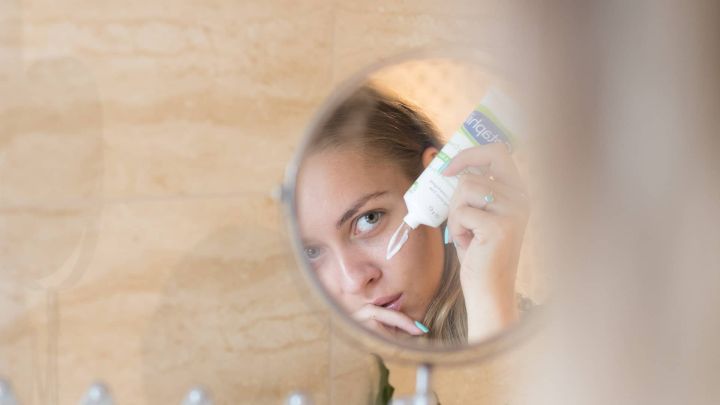Healthy
It is easy to suffer from cerebral apoplexy, chronic bronchitis and skin itching in autumn and winter. How to prevent
Due to the large temperature difference and poor temperature in autumn, it is easy to induce various diseases such as cerebral apoplexy, chronic bronchitis, skin itching, and even life danger, so we should pay attention to prevention.
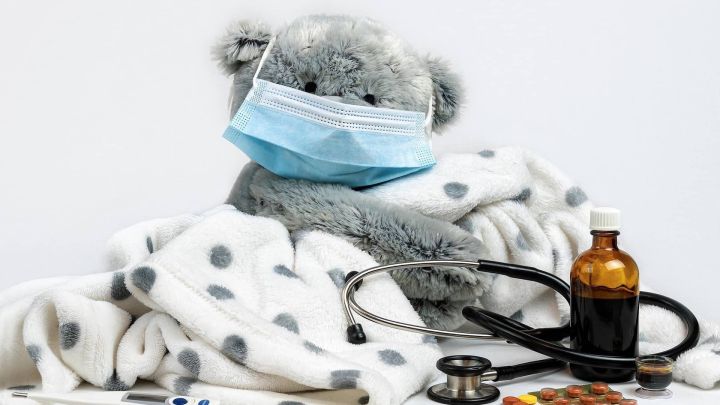
Due to the large temperature difference and poor temperature in autumn, it is easy to induce various diseases such as cerebral apoplexy, chronic bronchitis, skin itching, and even life danger, so we should pay attention to prevention.
Cerebral apoplexy: middle-aged and old people should be alert
Phenomenon: Autumn and winter are the frequent seasons of cerebral apoplexy. Especially in patients with hypertension, if epistaxis occurs suddenly and repeatedly, we should be careful that it is a precursor of cerebral hemorrhage. The reason is that the middle and old aged people have vascular sclerosis in the nasal cavity, vascular wall fibrous tissue hyperplasia, reduced elasticity of the vascular wall, and increased brittleness. When the blood pressure rises and the cerebral vessels are not ruptured, a certain blood vessel in the nasal cavity will rupture and cause epistaxis. Therefore, middle-aged and elderly people with hypertension and arteriosclerosis should be vigilant.
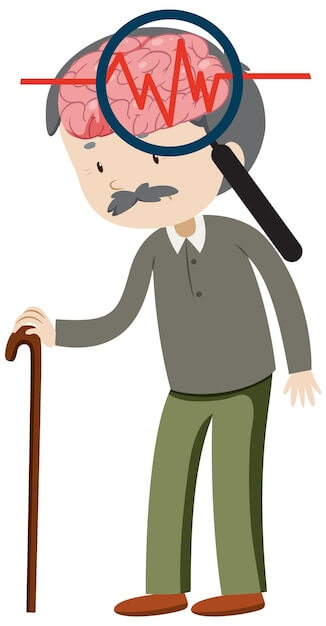
Symptoms: Common symptoms include the following, which should be alerted:
- Yawning. When cerebral arteriosclerosis gets worse, the lumen gets narrower and narrower, and cerebral ischemia and hypoxia get worse, especially when the respiratory center suffers from hypoxia, yawn reflex will be caused. More than 5 to 10 days before the onset of ischemic stroke, the frequency of yawning can reach about 80%, which is an important alarm signal.
- Stuttering and salivation. Bad speech and drooling are signs of stroke.
- Once the darkness has passed. That is to say, it suddenly appears black in front of the eyes and can not see anything. It will recover in seconds or minutes without nausea, vomiting, dizziness and consciousness disorder.
- Obscure vision. It often presents with transient visual impairment or visual field defect, and usually recovers spontaneously within 1 hour.
- Hemiparesis. That is, transient ischemic attack. Strictly speaking, this is the lightest stroke. Follow up observation shows that more than half of people have ischemic stroke 3 to 5 years after transient ischemic attack.
Anyone with one of the above symptoms should be checked as early as possible, and after a clear diagnosis, systematic treatment should be carried out to avoid the occurrence of stroke.
Reminder: Generally speaking, the elderly are more likely to induce various cerebrovascular accidents than the young due to increased vascular fragility and multiple systemic diseases. The following five groups of people should be particularly alert in late autumn and winter.
- Hypertension patients, especially those who cannot be treated formally and have poor blood pressure control, are most likely to have cerebrovascular accidents;
- diabetes patients are prone to accidents under the influence of external factors, such as climate and intense activities, due to the influence of the whole blood vessels and changes in the structure of blood vessel walls;
- Patients with hyperlipidemia and arteriosclerosis; The patients with cerebral aneurysm and cerebral vascular malformation in the population with original cerebral vascular abnormalities are prone to vascular rupture when the seasons change;
- Research on smokers shows that smoking will seriously affect cardiovascular and cerebrovascular functions, and the chance of cerebrovascular accidents is greater than non-smokers;
- Women who smoke and are taking oral contraceptives are more likely to have cerebrovascular accidents.
Prevention: First of all, pay attention to the law of life, increase or decrease clothes at any time to prevent getting cold. When the weather is appropriate, you should often walk, and at the same time, frequently observe your blood pressure. Secondly, before going to bed at night and after getting up in the morning, you should drink about 200 ml of boiled water to reduce blood viscosity and prevent stroke. In addition, you should often eat spinach, celery, Chinese cabbage and other foods rich in crude fiber to promote intestinal peristalsis and keep your stool smooth. Eating 1~2 bananas every day can also reduce the incidence rate of stroke.
Chronic bronchitis: the cream has good conditioning effect
Phenomenon: Chronic bronchitis is a common disease of middle-aged and elderly people in winter, which is mainly caused by the untimely cure of acute bronchitis. It is generally believed that chronic bronchitis can be diagnosed if there is cough for 3 months in a year, which lasts for more than 2 years, and the cough is not caused by other diseases such as heart and lung. In winter, the climate is dry and cold, and respiratory tract infection is easy to occur, leading to the recurrence of "old chronic bronchitis".
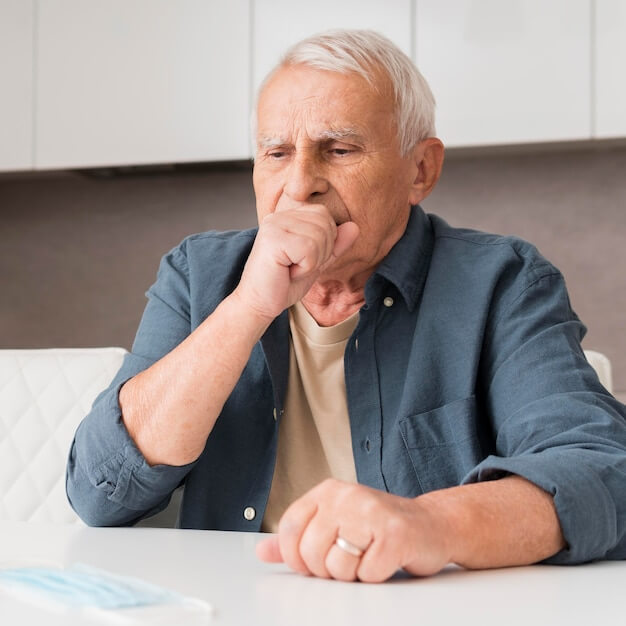
Symptoms: As we all know, the clinical manifestations of chronic bronchitis patients are mostly chest tightness, shortness of breath, aggravation when moving, cough, expectoration, thin white matter, foam like, sweating like water, afraid of cold and evil wind, aching waist and cold limbs, not thinking about food, thin fat tongue, white fur, and weak pulse. According to the syndrome differentiation of TCM, it belongs to spleen kidney yang deficiency syndrome. This is because of the repeated attacks of cough and asthma, accumulated over time, chronic disease and kidney will be deficient. In addition, antibiotics and hormones are used in large quantities for a long time, so that patients with spleen deficiency produce dampness and phlegm, kidney yang deficiency is damaged, which is easy to cause the invasion of wind and cold, and eventually lead to repeated cough and asthma, which is getting worse year by year, and does not heal all year round.
Reminder: Based on the compound decoction, the cream is prepared by dispensing drugs according to different physiques and clinical manifestations of people, and by combining the monarchs, ministers and envoys reasonably to form a conditioning prescription that comprehensively considers the changes of qi, blood, yin and yang in the body. It is refined and processed through the processes of immersion, boiling, concentration, and cream collection. Therefore, the cream policy can play a fundamental role in regulating diseases such as chronic bronchitis, which often occur in winter.
The following points should be paid attention to when taking the cream: 1. During taking, if there are fever, expectoration, color, yellow, sticky and other acute symptoms of old chronic bronchitis, you should stop taking the cream. 2. The elderly patients with chronic bronchitis have spleen and kidney deficiency. If they have stomach stagnation, abdominal distension, loose stools and other discomfort symptoms before the prescription, they can ask the doctor to write several "Open Road Prescriptions" to recover their gastrointestinal function before taking the cream, so as not to affect absorption. 3. Avoid eating raw, cold, greasy and spicy food during taking the cream, so as not to damage the spleen and stomach, make it difficult to digest and absorb, and stimulate the respiratory tract to aggravate cough, phlegm and asthma symptoms; Patients with lung qi deficiency should avoid eating radish when taking the lung qi tonifying ointment containing ginseng; Avoid pig, sheep blood and iron when taking Shouwu ointment; Do not drink strong tea; The cream should not be taken with milk, because it is rich in calcium, phosphorus and iron, which can easily react with organic substances in nourishing traditional Chinese medicine to form insoluble and stable compounds, causing the destruction of effective ingredients. 4. After the cream is opened, it should be stored in the refrigerator in time. If mildew is found, it should not be taken again.
Prevention: First of all, we should prevent colds, which are the inducement of many diseases. We can strengthen the body's ability to resist the cold by cold water washing face and other cold resistant exercises; At ordinary times, pay attention to the living environment, open doors and windows regularly, keep the air fresh, and do not keep pets indoors; We should have a reasonable diet, light and soft. We should eat more foods rich in vitamins, trace elements and high-quality protein, and we should not eat anything salty, hot or dry; You should also absolutely stop smoking and drinking. In addition, it should be noted that "old chronic bronchitis" should focus on keeping fit and strengthening the body's disease resistance during the remission period, and should be treated with drugs under the guidance of doctors.
Skin itching: relieve itching and not bathe frequently
Phenomenon: In winter, due to the stimulation of cold and dry weather, the skin blood vessels can be contracted, and the secretion function of sebaceous glands and sweat glands can be further reduced, resulting in more reduced sebum and sweat, making the skin more dry. The aggravation of skin dryness can promote the degeneration and aging of nerve endings receptors distributed in the skin, and send out abnormal stimulus signals to the sensory center of the cerebral cortex, so as to produce a sense of itching.
Symptoms: According to dermatologists, skin itching can be seen at all ages, both men and women, old and young. Among them, the majority are the elderly with weak qi and blood, the young and middle-aged men who are addicted to fat, sweet and greasy food, and the children with allergic constitution.
The dry pruritus of the elderly skin has the following characteristics: ① It often appears after bathing, and usually starts from the lower leg with less glands, and then extends upward to the whole body; ② Dry skin, scales, scratches and even blood scabs can be seen; ③ The itching is paroxysmal, light in busy time, heavy in idle time, light in day and heavy in night. Especially before going to bed, the itching is often intolerable, which can affect sleep. As a result, some elderly people frequently bathe after itching, sometimes two or three times a day, and the water temperature is very high when bathing. Health experts point out that people may feel more comfortable in a short time after taking a bath, but they will itch again soon.
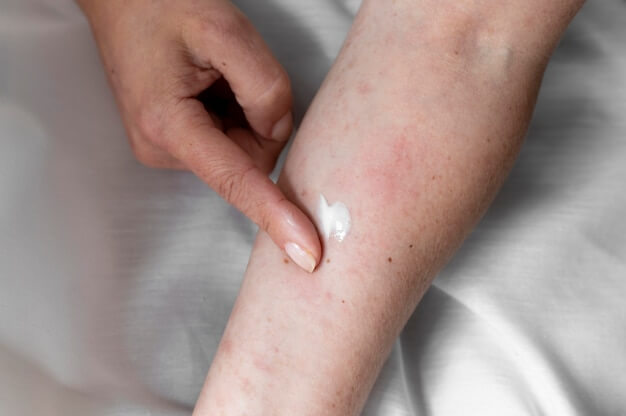
Reminder: Dermatologists believe that the dryness of the weather is only one aspect, and many readers further aggravate the symptoms of skin itching due to their misunderstanding. For example, some people think that skin itching is caused by the lack of water in the skin, so they not only try hard to wash and wash hands, but also use hot water to burn, thinking that washing can make the skin absorb more water. In addition, many people believe that hot water can relieve itching.
prevention:
- Wear pure cotton clothes. The clothes should be made of natural fabrics, and the close fitting underwear should be made of pure cotton to increase the air permeability, which will not cause allergy after contact with the skin.
- Eat fresh vegetables. When there is no disease, nutrition should be balanced and there is no need to avoid eating. When you get sick, you should give up drinking and avoid eating food with high irritation, such as chili, cattle, sheep, dogs and goose, because warm and dry food is easy to catch fire and aggravate itching symptoms.
- Apply emollient oil. When you feel some itching, apply some emulsion or cream with antipruritic effect locally. Do not use scratching or scalding to relieve symptoms.
-
![]()
![]() HealthyJul 26, 2025
HealthyJul 26, 2025Chillies Are Both a Tasty Seasoning And a Good Appetite Booster
-
![]()
![]() HealthyJul 25, 2025
HealthyJul 25, 2025How To Manage Cold In The Womb For Women
-
![]()
![]() HealthyJul 24, 2025
HealthyJul 24, 2025What To Look For In a Bronchitis Diet
-
![]()
![]() HealthyJul 23, 2025
HealthyJul 23, 2025What To Do If Your Face Is Red And Peeling And Dry
-
![]()
![]() HealthyJul 22, 2025
HealthyJul 22, 2025Spring Constipation With Herbal Remedies, Easy And Convenient To Improve Symptoms



